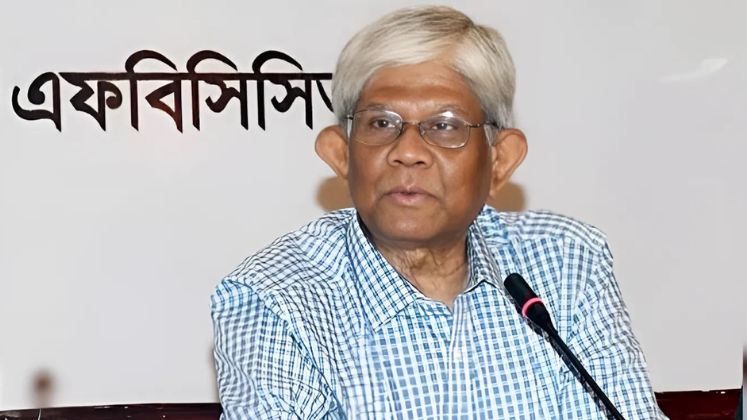
Bangladesh is hopeful of securing reduced tariffs on its exports to the United States, according to Finance Adviser Dr. Salehuddin Ahmed. Speaking after the weekly meeting of the Advisory Council Committee on Government Purchase (ACCGP) at the Bangladesh Secretariat, he expressed optimism that tariff rates for Bangladeshi products will be lowered in upcoming negotiations.
Dr. Salehuddin noted that Bangladesh plans to continue importing essential items from the US, though he declined to specify the commodities at this time. He highlighted that Bangladesh’s trade deficit with the US remains relatively low, estimated between US $ 6.5 billion and US $ 6.7 billion.
The adviser discussed ongoing discussions with US officials regarding tariff reductions and emphasized that negotiations are still underway. He mentioned that, as part of efforts to boost trade volume, Bangladesh is exploring alternative sourcing strategies, especially given recent uncertainties faced when importing wheat from Russia and Ukraine due to geopolitical issues in the Black Sea region.
Regarding the impending tariff increase set for 1st August, Dr. Salehuddin revealed that the government’s commerce adviser will travel to the US shortly to meet with officials, including representatives of the Office of the US Trade Representative (USTR). He also indicated that engaging lobbyists at this stage may not be beneficial, citing the rapid pace of decision-making.
When asked about involving local business leaders in negotiations, the Finance Adviser stated that they would not have access to the negotiation tables and that attempts to influence policy from outside meetings may not be effective. Nonetheless, he acknowledged the importance of the US private sector and shared that dialogues with the US Chamber of Commerce have been positive, noting a good impression of Bangladesh.
This development comes amid recent US trade measures, including a 35% tariff imposed by President Donald Trump on Bangladeshi imports on 7th July. While this rate is 2% lower than the initial announcement three months prior, it remains significantly higher than Vietnam’s recent trade deal with the US, which caps tariffs on its goods at 20%. The US government cited a persistent and substantial trade deficit with Bangladesh as the reason for the tariff hike.
As negotiations continue, Bangladesh remains hopeful of favorable outcomes that could help mitigate the impact of tariffs and strengthen trade relations with the United States.






